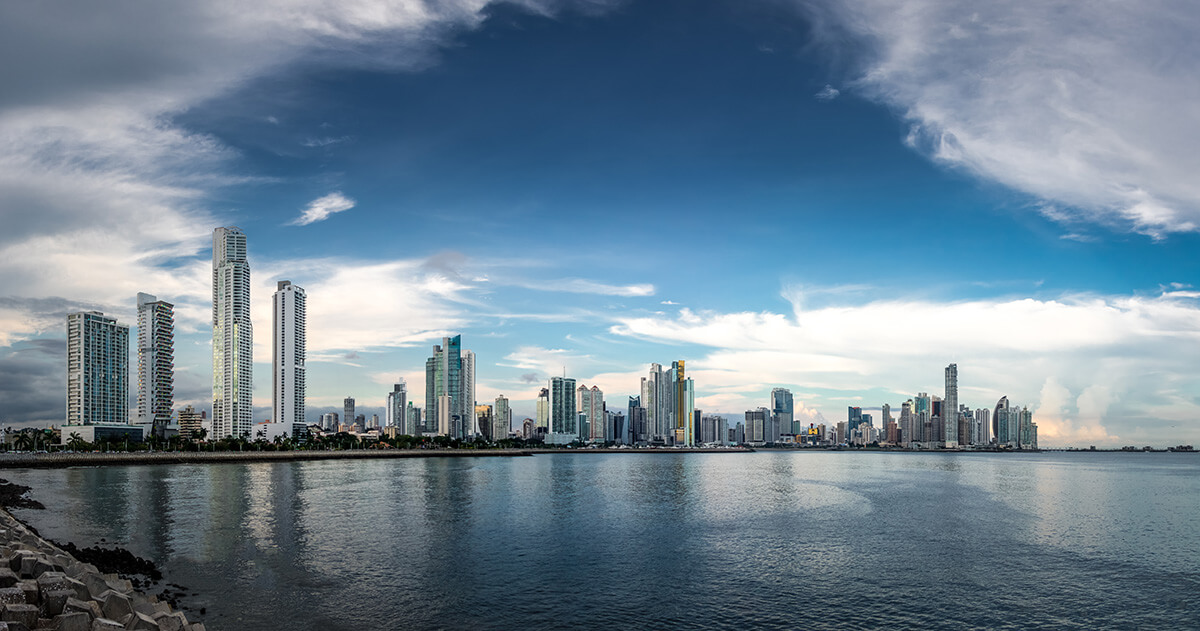Anti Money Laundering law is an issue addressed by Panamanian legislators who continue to face some of the most important elements in the fight against organized crime.
The government is seeking to add to Panama’s already extensive legislation on Anti Money Laundering law, to further enhance the fight against organized crime.
The aim is to further protect the country and reinforce existing legislation by introducing a series of new and innovative measures in this field.
The emphasis is on reducing the economic capacity of organized criminal groups as far as possible, by attacking their operational and financial capability.
An important premise for these initiatives is that criminal organizations operate both within and outside the national borders of any given country.
Panama | New and important legislative initiatives
Panama is thus seeking to stimulate and reinforce the legislation already in force using ongoing coordination between local and international law enforcement.
By doing so, Panama is also seeking to further protect civilians who may be affected by violent crimes committed by criminal organizations, affecting their quality of life, doing an Anti Money Laundering law.
New Initiative Anti Money Laundering Law
Criminal organizations often position members of their own organizations within professions that would otherwise be used to avoid the successful operation of criminal groups.
The focus of the new initiatives is to attack the means and mechanisms used by these organizations to operate.
They are also designed to aid in the process of tracing profits generated illegally.
On the 29th of April of this year, Juan Manuel Pino, Minister of Public Security, presented one of these legislative proposals to the Panamanian Legal Assembly.
The initiative is known as “la ley de extinción de Dominio”, meaning a law regarding the expropriation of illegal goods and assets by the State.
It is designed to be converted into an effective mechanism to disarm criminal groups.
Objectives of the law Anti Money Laundering law
One of the aims is that assets purchased using money generated from the illegal activity will be devoid of all legal protection and successfully returned to the State.
The Ministry for Public Security is seeking to work hand in hand with other branches of the government to achieve this goal.
Panama thus continues in its fight to minimize the incidence of criminal activity and further promote and protect a culture of peace
The proposed legislation contains key elements such as procedures for prosecution and the freezing of criminal assets, amongst others.
The announcement of this law
The initiative was first announced by the President of Panama, Laurentino Cortizo, on the 2nd of January in his address to the nation.
The Ministry for Public Security is aiming for a consolidated attack on assets obtained or purchased using funds generated by criminal activity.
Examples of the type of assets that would be the subject of expropriation of assets would be:
- Assets, whether cash or tangible assets, such as property, are the direct or indirect product of a crime.
- Assets that are identified as linked to an increase in wealth cannot be otherwise justified when there are elements that reasonably describe different possibilities that the funds are of illicit origin.
- Assets are traced as being intended for use in the commission of a crime.
- Goods or assets generated or purchased legally are used to mix or hide illegal profits.
Another area under review is legislation used to detect and scrutinize the influx of cash, particularly sums in cash of over $10,000, into the country.
The aim is to provide the means for non-banking institutions, such as customs and border control, to cooperate more fully in this effort.
Review of Law 23 of 2015 Anti Money Laundering law
The government is also currently revising other existing legislation in force, including Law 23 of 2015 and its regulations.
This law regulates financial and non-financial institutions, such as banks, law firms, and accounting firms.
It contains procedures to be followed to protect against money laundering (Anti Money Laundering), terrorist financing, and the proliferation of weapons of mass destruction.
This piece of legislation was key in securing the removal of Panama from the FATF Grey List in 2016.
An important element in the ongoing process of due diligence carried on by financial and non-financial institutions in Panama is the periodic review and update of information on file.
This review is carried out in line with the profile of each client.
The legislative initiative regarding Law 23 involves more focus on the financial and transactional profile of the customer.
An increase in vigilance where any sign of suspicious activity may be seen is also crucial.
In recent years, an important focus has been on using internal Compliance Manuals.
These manuals are required to highlight the need for conducting regular internal Anti Money Laundering compliance training for all staff of both financial and non-financial entities.
Also of crucial importance is the use of a risk-based approach when requesting supporting documentation, both at the onset of and following the continued relationship with the client.
Anti money Laundering Law 23
Documents, data, and information as a result of the application of the measures listed in Law 23 and its respective resolutions need to be reviewed and updated on a regular basis in line with that initial risk assessment.
Movements of cash, checks, or electronic transfers, are of special importance.
The new legislation again reemphasizes the need for prioritizing a risk-based approach.
The importance of the treatment and monitoring of high-risk clients is also highlighted.
The type of products and services provided to the client is key in the methodology used by service providers.
This is also key as regards the amount and detail of information requested at any point during the relationship.
Regulators are keen to also emphasize the importance of service providers remaining vigilant to clients’ needs.
Any changes in those needs may warrant increased monitoring of the relationship.
We look forward to adopting any new procedures designed to enforce Panama’s legal protection against the misuse of products or services.
We will continue to bring you continued updates as and when they arise.
What Is Anti Money Laundering (AML)?
Anti Money laundering (AML) refers to laws, regulations, and procedures aimed at uncovering efforts to disguise illicit funds as legitimate income.
Also, Anti Money laundering (AML) legislation was a response to the growth of the financial industry, the lifting of international capital controls, and the growing ease of conducting complex chains of financial transactions.
If you are interested in reading more about us, access our blog. Also, read these blog articles:
Anguilla, Bahamas, and Panama entities overview.
Panama| Best residency option for investors
Panama | Register of beneficial owners overview
Panama | New legislation on accounting records
Panama | Accounting records requirements for legal entities
We invite you to subscribe to our Youtube channel, where you can find videos on topics of interest in corporate and fiduciary matters, among others.




